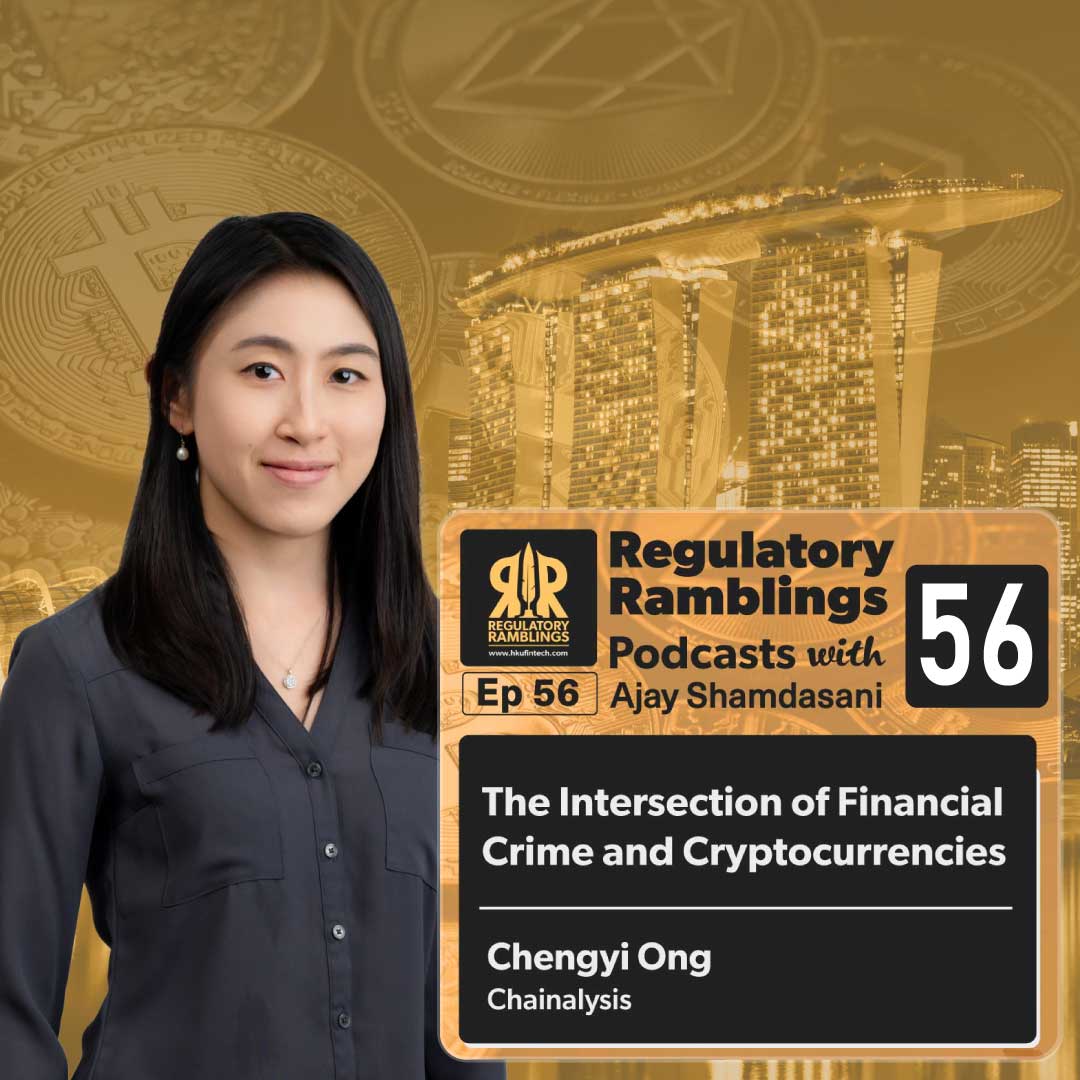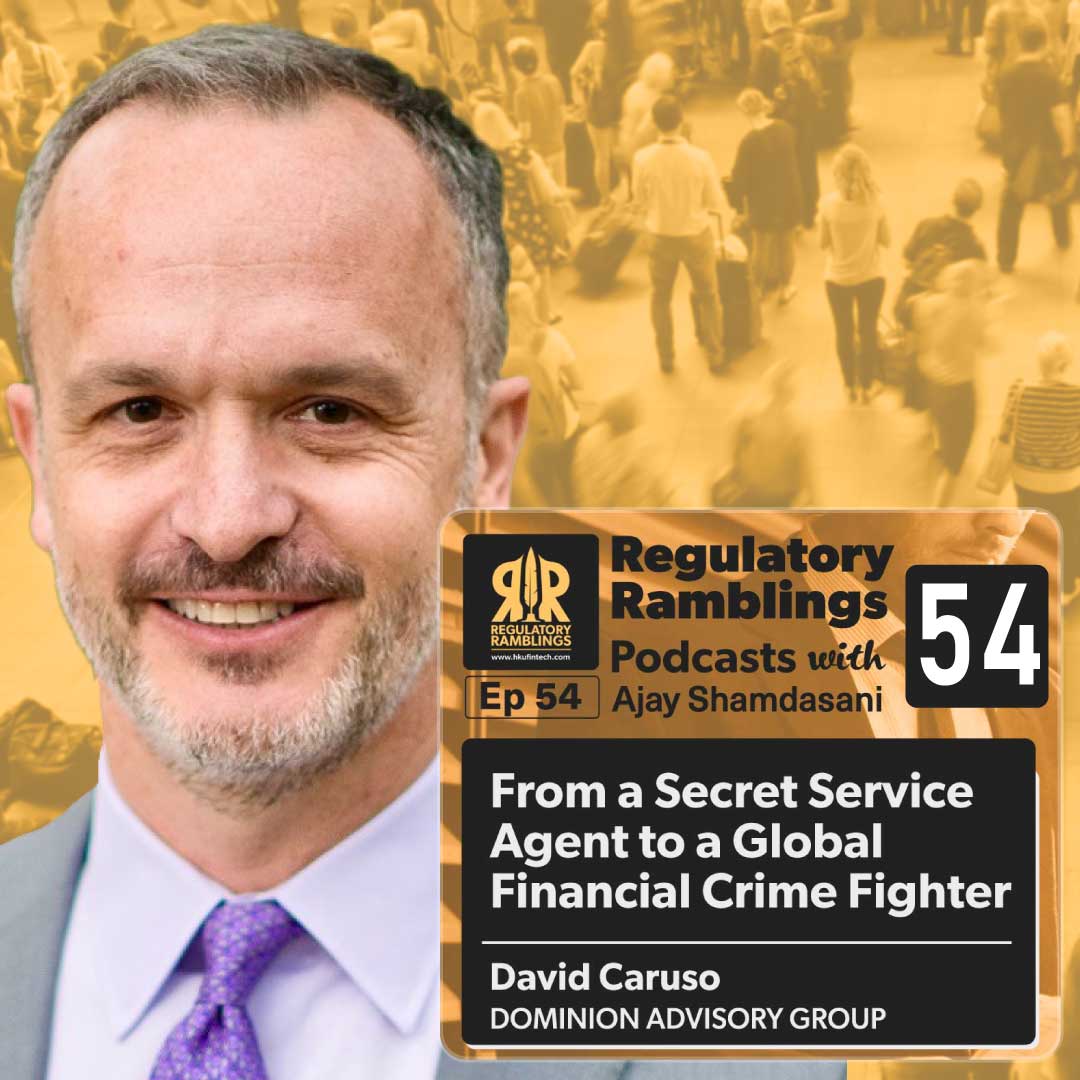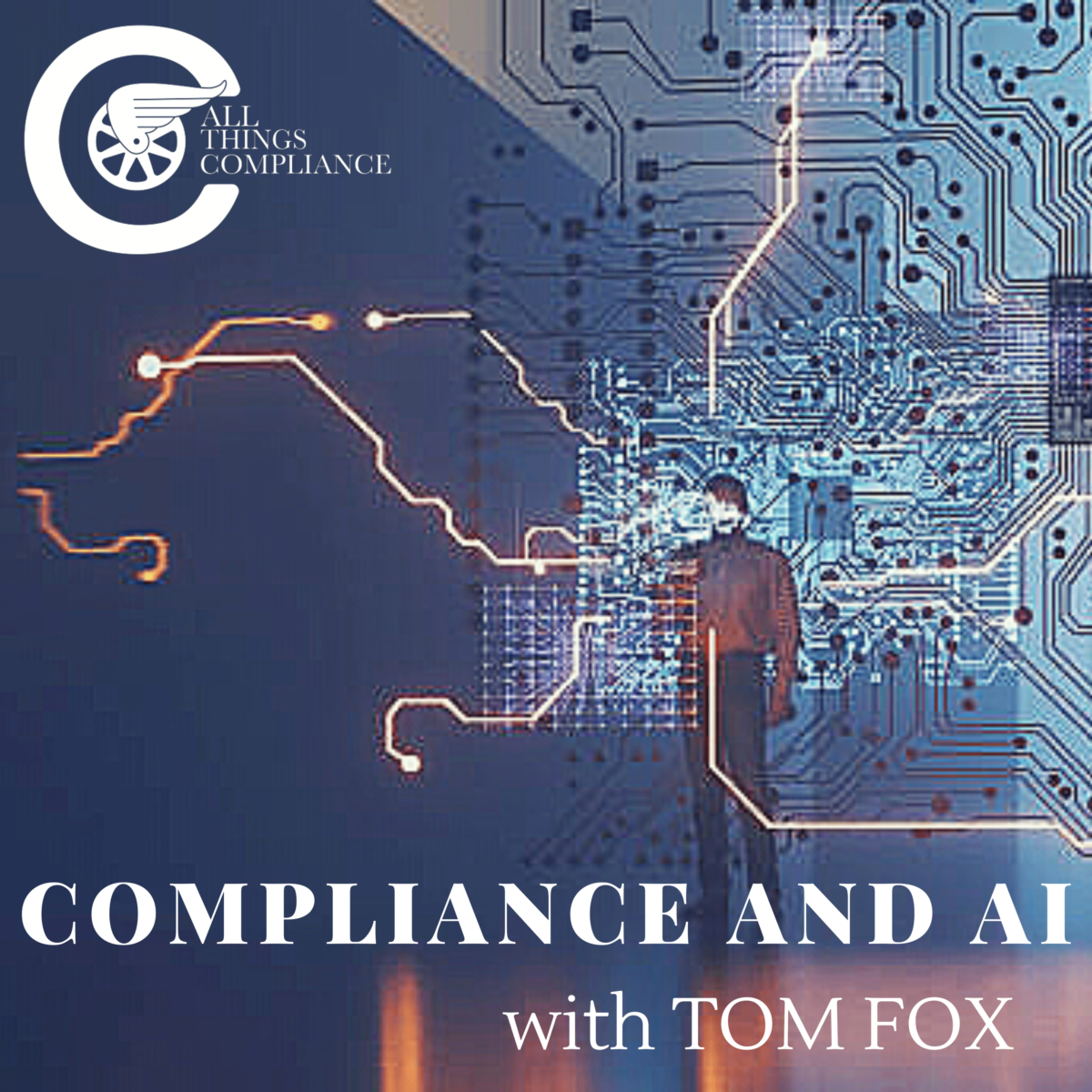Chengyi Ong leads public policy in the Asia-Pacific region for Chainalysis from the firm’s regional headquarters in Singapore. Drawing on Chainalysis’s blockchain data analytics platform, she works with public and private sector stakeholders to distill developments in digital asset markets and their intersections with global and regional regulatory trends.
Before joining Chainalysis, Chengyi spent 13 years at the Monetary Authority of Singapore, holding roles in financial regulation and supervision, financial sector development, and central banking. She also served as the Advisor to the Executive Director for Southeast Asia at the International Monetary Fund.
In this episode of Regulatory Ramblings, she talks to host Ajay Shamdasani about the intersection of money laundering, financial crime, and cryptocurrencies.
The conversation begins with Chengyi describing her upbringing, formative years, career path choice, and time as a regulator at the MAS. She then discusses what Chainalysis does, its market position, and her interest in the digital asset sector.
She shares her views on the rising levels of both crypto-native and non-crypto-native money laundering, why such trends are growing, and the types of crimes emanating from Asia, making reference to key findings from Chainalysis’ recent report on the matter, including the 2024 Crypto Crime Report and the 2024 Crypto Money Laundering Report (links below).
Chengyi also discusses her thoughts on stablecoins being used for money laundering, what her firm’s report says about the destination of illicit funds, and the best ways to prevent crypto-native money laundering – especially in the Asia-Pacific. To that end, she is candid about what regional regulators should do to tackle this issue, noting that more needs to be done. What ensues is a deeper chat about what regulators’ role in ferreting financial crime should be vis a vis cryptocurrency exchanges and financial institutions – the latter of which are financial gatekeepers in their own right.
The conversation concludes with Chengyi reflecting on the arc of her career and how AML regulations have evolved in APAC over the years. She stresses that in an age of aggressive enforcement actions, sanctions, and not insubstantial fines, it will be imperative for organizations to verify the entities they are transacting with and engaging with. She offers some suggestions as to how they may do so.
Regulatory Ramblings podcasts is brought to you by The University of Hong Kong – Reg/Tech Lab, HKU-SCF Fintech Academy, Asia Global Institute, and HKU-edX Professional Certificate in Fintech, with support from the HKU Faculty of Law.
Useful links in this episode:
-
Connect or follow Chengyi Ong on LinkedIn
-
Chainalysis: Webpage
-
2024 Crypto Crime Report
-
2024 Crypto Money Laundering Report
You might also be interested in:
-
Must have book by Ross Buckley, Douglas Arner & Dirk Zetzsche – FinTech: Finance, Technology & Regulation
-
Building Better Financial Systems: FinTech Sustainability – Research
-
HKU-SCF Fintech Academy – website
-
Asia Global Institute – website
-
Most sought after Fintech course on edX – Introduction to Fintech
Connect with RR Podcast at:
LinkedIn: https://hk.linkedin.com/company/hkufintech
Facebook: https://www.facebook.com/hkufintech.fb/
Instagram: https://www.instagram.com/hkufintech/
Twitter: https://twitter.com/HKUFinTech
Threads: https://www.threads.net/@hkufintech
Website: https://www.hkufintech.com/regulatoryramblings
Connect with the Compliance Podcast Network at:
LinkedIn: https://www.linkedin.com/company/compliance-podcast-network/
Facebook: https://www.facebook.com/compliancepodcastnetwork/
YouTube: https://www.youtube.com/@CompliancePodcastNetwork
Twitter: https://twitter.com/tfoxlaw
Instagram: https://www.instagram.com/voiceofcompliance/
Website: https://compliancepodcastnetwork.net





